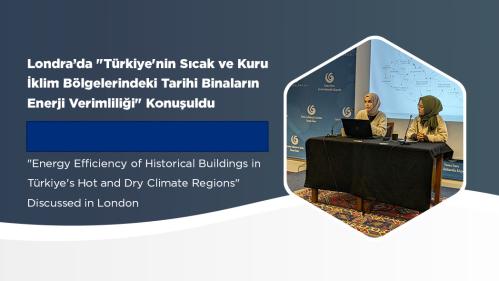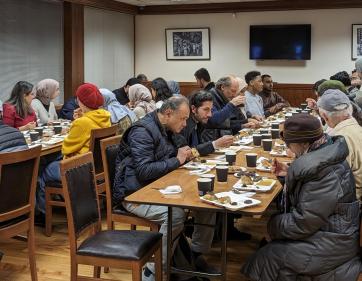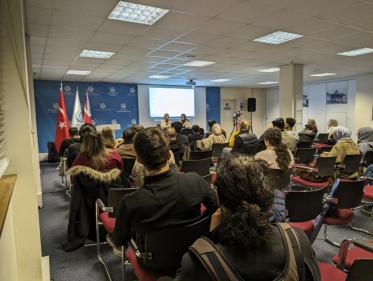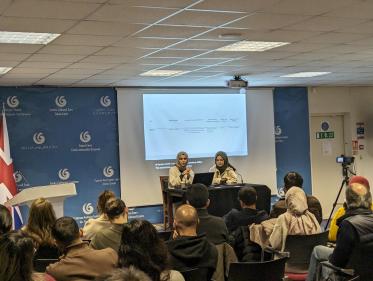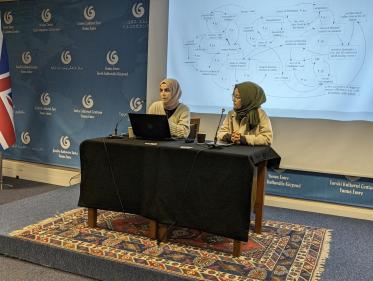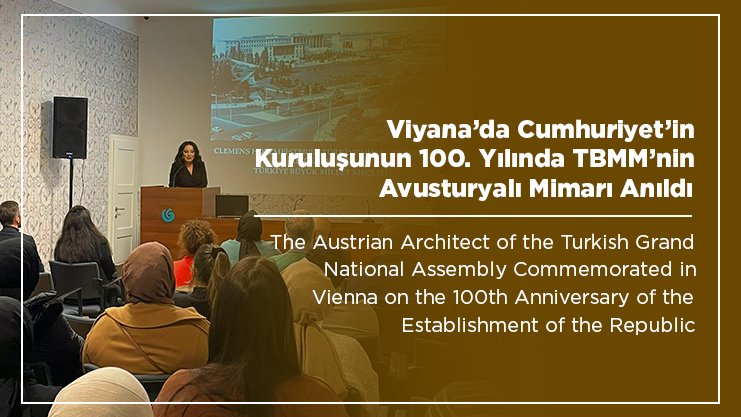"Energy Efficiency of Historical Buildings in Türkiye's Hot and Dry Climate Regions" Discussed in London
Yunus Emre Institute London hosted another interesting speech titled "Energy Efficiency of Historical Buildings in Türkiye's Hot and Dry Climate Regions" within the scope of the 27th episode of the Young Academician Seminar Series.
Yunus Emre Institute London, which has adopted the mission of encouraging intellectual discussion and knowledge sharing, continues to organize events in line with this goal with the Young Academician Seminar Series.
Yunus Emre Institute London hosted another interesting speech titled "Energy Efficiency of Historical Buildings in Türkiye's Hot and Dry Climate Regions" within the scope of the 27th episode of the Young Academician Seminar Series. The speech given by Merve Karabeyeser, an architect and PhD student at University College of London, was held on Thursday, March 28, 2024, along with a special iftar for Ramadan.
Merve Karabeyeser Bakan began her presentation on energy efficiency in historical buildings with the surprising statistic that 40 percent of current carbon emissions come from buildings, and 25 percent of this comes from especially old historical buildings. She emphasized that there is an urgent need to address energy consumption in these buildings in the context of combating climate change and reducing carbon emissions.
“Energy Efficiency Measures Should Be Taken While Preserving Their Historical Integrity”
In her presentation, Bakan discussed various aspects related to energy efficiency in historic buildings, while highlighting the multifaceted challenges posed by these structures in preserving their heritage value. He emphasized that, unlike modern buildings, energy efficiency measures should be taken by preserving the historical integrity of historical buildings.
Bakan’s presentation went beyond technical solutions and explored the dynamic relationship between human behavior, thermal comfort and heritage conservation. She emphasized that people's perception of thermal comfort significantly affects the use of historical buildings and advocated a holistic approach in which these related factors are taken into consideration.
Taking Gaziantep as a case study, Bakan emphasized the importance of passive strategies used in hot and dry climates. These strategies have deep roots in the architectural heritage of the region and not only increase energy efficiency but also contribute to the preservation of cultural identity.
In conclusion, Bakan emphasized the importance of adopting a holistic perspective on energy efficiency in historical buildings. She stated that minimizing intervention and maximizing efficiency will ensure the transfer of these unique cultural assets to future generations.

